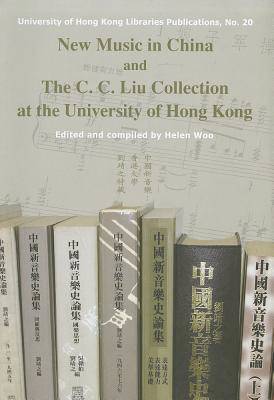
Door een staking bij bpost kan je online bestelling op dit moment iets langer onderweg zijn dan voorzien. Dringend iets nodig? Onze winkels ontvangen jou met open armen!
- Afhalen na 1 uur in een winkel met voorraad
- Gratis thuislevering in België vanaf € 30
- Ruim aanbod met 7 miljoen producten
Door een staking bij bpost kan je online bestelling op dit moment iets langer onderweg zijn dan voorzien. Dringend iets nodig? Onze winkels ontvangen jou met open armen!
- Afhalen na 1 uur in een winkel met voorraad
- Gratis thuislevering in België vanaf € 30
- Ruim aanbod met 7 miljoen producten
Zoeken
New Music in China and the C. C. Liu Collection at the University of Hong Kong
Helen Woo
€ 41,95
+ 83 punten
Omschrijving
This publication is not a standard catalogue. Part A comprises five invited papers, each of which touches on a topic directly or indirectly related to the music of China in the twentieth century Barbara Mittler provides a brief account of C. C. Liu's life and his researches; Helen Woo writes on the significance of The C. C. Liu Collection; Chan Hing-yan traces and criticizes some of the main trends of the modern Chinese orchestra over the past 60 years; Yu Siu-wah anatomizes Sun Wenming's Liu Bo Qu, painstakingly going through every minute detail to demonstrate the musical logic of this seemingly humble masterpiece; and Harrison Ryker scrutinizes the issue of polytonality, a strategy seen by many Chinese composers in the last 50 years as a way to enhance "Chineseness" in their compositions, though Ryker, by and large, uses works of European composers to explicate his arguments. The inclusion of these articles will no doubt elevate the scholastic value of the current publication. Part B consists of the catalogue of library materials related to new music of China donated by Liu Ching-chih to the University of Hong Kong.
Specificaties
Betrokkenen
- Auteur(s):
- Uitgeverij:
Inhoud
- Aantal bladzijden:
- 396
- Taal:
- Engels
- Reeks:
- Reeksnummer:
- nr. 20
Eigenschappen
- Productcode (EAN):
- 9789622097728
- Verschijningsdatum:
- 11/10/2005
- Uitvoering:
- Hardcover
- Formaat:
- Genaaid
- Afmetingen:
- 180 mm x 254 mm
- Gewicht:
- 1088 g

Alleen bij Standaard Boekhandel
+ 83 punten op je klantenkaart van Standaard Boekhandel
Beoordelingen
We publiceren alleen reviews die voldoen aan de voorwaarden voor reviews. Bekijk onze voorwaarden voor reviews.











